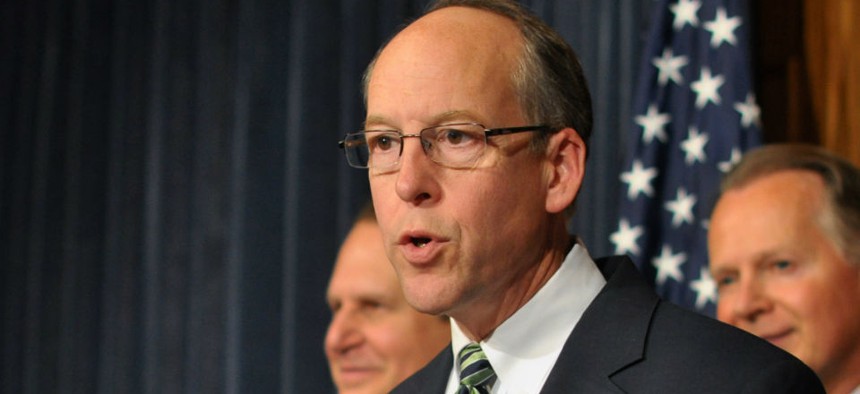
Greg Walden, head of the National Republican Congressional Committee Flickr user House GOP
Republicans Airing Ads Attacking Democrats as Being Soft on Terrorism
The chairman of the National Republican Congressional Committee says expect more national-security-themed ads to come.
House Republicans are making a big bet that in the final weeks of the midterm election they can exploit doubts about President Obama's foreign policy to persuade late-deciding voters to support Republicans.
The National Republican Congressional Committee announced Friday a quartet of new ads focusing on national security. One, airing against Rep. Dan Maffei of New York, accuses the congressman of "backing constitutional rights for foreign terrorists." Another, in a bellwether Iowa district, claims that Democratic candidate Staci Appel supports "passports for terrorists." These ads open with footage from Islamic State fighters.
At a breakfast hosted by the Christian Science Monitor the same morning, the group's chairman, Greg Walden, made clear it's a topic voters can expect to see more of from Republicans before Election Day.
Foreign policy and terrorism, he said, have seen a "big uptick" in polls, Walden said, and are contributing to a big shift among voters toward the GOP in recent weeks.
"There is just this growing sense that things are a little out of control," he said. "And I don't mean …. they don't like Washington. Fifty-seven percent of the American people don't think President Obama is doing a good job on the terrorist question. That points to a real, real problem for all concerned."
The NRCC chairman pointed specifically to "security moms"—women whose worries about national security nudged many of them to vote for the Republican Party in the 2002 midterms—as a bloc who have been sensitive to the issue.
There's a real debate within the GOP, in both Senate and House races, about how prominent a role foreign policy should play in the campaign's closing weeks. Many of the party's candidates have used the topic to argue that Obama is incompetent, but others have shown hesitation to distract their airtight message on domestic issues.
The NRCC, apparently, no longer shares those worries. Asked if foreign policy had overtaken the economy as voters' primary issue of concern, Walden demurred.
"I don't know that I could answer that at this point," he said. "I'd want to see more data." He added that it's a "very potent and important issue."
"In campaigns, you want to be talking about issues people care about."
(Image via Flickr user House GOP)
NEXT STORY: What Leaders Must Learn From the NFL Fiasco







